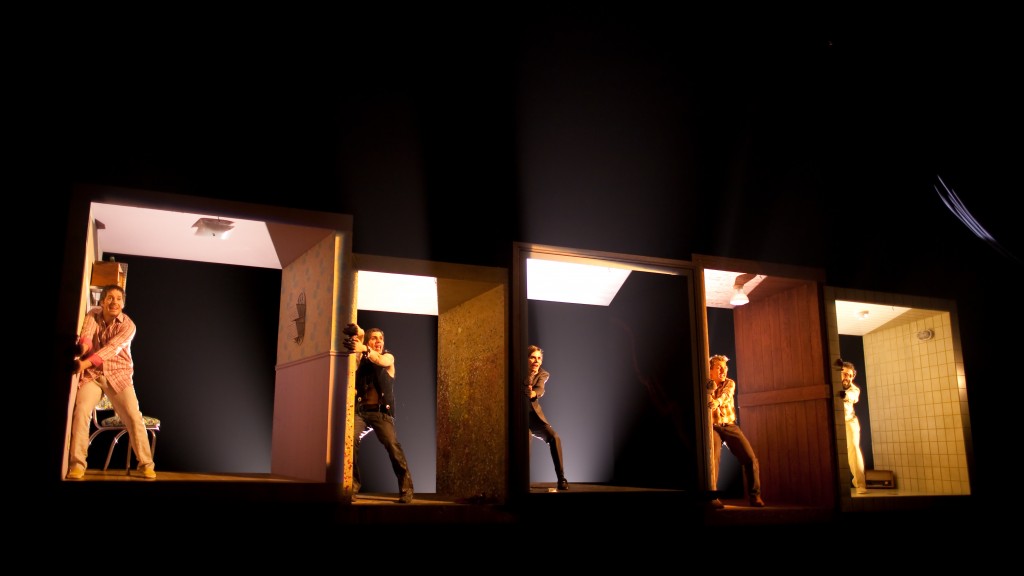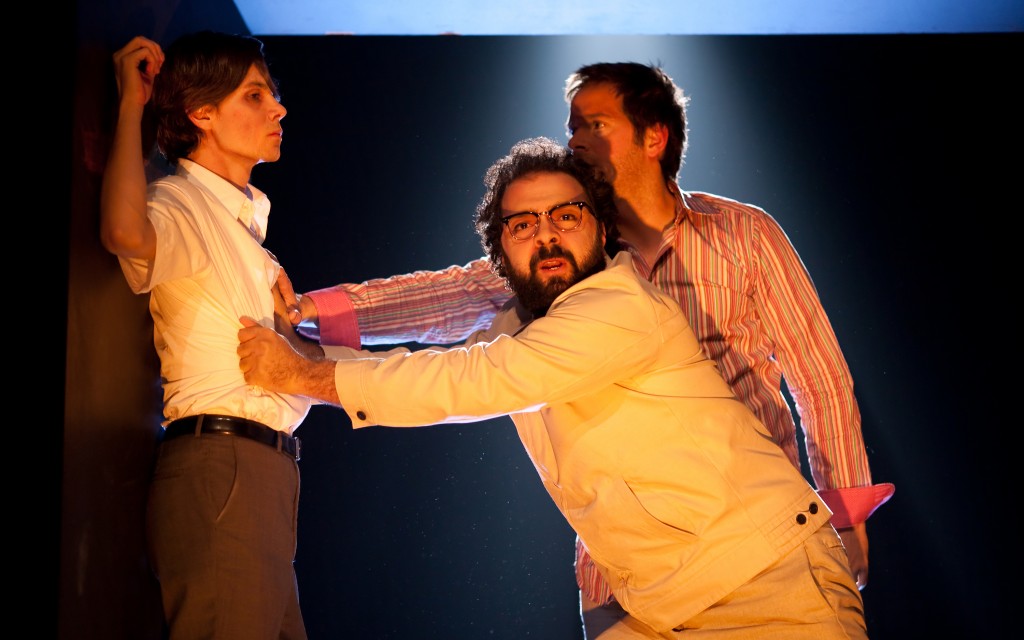
At SFU’s Goldcorp Centre for the Arts until January 25
604-684-2787/www.ticketstonight.ca
Posted January 24, 2014
At the heart of Larry Tremblay’s 1995 play is an event that might have been a murder or just a tragic accident. Unfortunately, this central issue doesn’t surface until three-quarters of the way through the play. And when the possibility of a crime committed decades ago does finally emerge, we don’t know why or even if. We don’t hear for a long time that francophone Gaston Talbot – all five actors in the piece say they are Gaston Talbot – became aphasic for decades following this mysterious incident. And when Gaston’s voice finally did come back he could only speak English – a language he formerly couldn’t speak and which, moreover, as a Quebecois, he resented.
Tremblay wrote the play for one actor but director Claude Poissant replaces that one actor with five. I suppose they are Gaston in various stages of his life – although that’s not obvious; one is a manifestation of his mother. Adding to the confusion is that one of the Gastons appears to be in a cell.
Alright, The Dragonfly of Chicoutimi confused me but I don’t think I was alone.
The story, as told by adult Gaston, involves two boys: his sixteen-year-old self and his friend Pierre Gagnon whom we later discover was an anglophone whose name was really Pierre Gagnon-Connally. Although younger than Gaston by four years, Pierre was the leader of their pack-of-two when they ventured out into the forest and along the Saguenay River one summer day. Pierre ordered Gaston around – in English, forced him down on all fours and rode him like a horse down to the river. It was there that Pierre drowned or was murdered.
Like a pinned dragonfly, Gaston is now ‘caught’, unable to live happily, to travel or (as he puts it) to “stay in touch”. And with whom would he stay in touch, anyway? A dream sequence suggests his mother disliked him, calling him a “son of a bitch” and locking him out of the kitchen; his father is absent. There is no wife, no child.
Fortunately, The Dragonfly of Chicoutimi is really interesting visually; the set and lighting designers (Olivier Landreville and Erwann Bernard respectively) are the stars of this show. Each of the five Gastons is stationed in a framed-in ‘box’ from which they deliver Tremblay’s poetic monologues. The effect is like a peep show and Eric Forget’s music enhances that effect with music that feels like a carnival.
The Dragonfly of Chicoutimi has a strong undercurrent of homoeroticism as well as a two solitudes divide. When Gaston finally speaks and he spits it out in English, it’s as if he’s appalled at what he perceives as shit coming out of his mouth.
Produced by Théâtre PÀP for the PuSh Festival, The Dragonfly of Chicoutimi seems to have a whole lot to say; I only wish it would say it with more clarity in one language or another.


